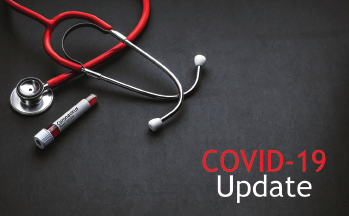
© Silver Wings SS / shutterstock.com
When the first laboratory-confirmed COVID-19 case was reported by the CDC on Jan. 22, 2020, it was difficult to predict that an ensuing global pandemic would last for more than half the year, with no clear end in sight. Approximately one week after the initial CDC report, the U.S. Department of Health and Human Services (HHS) declared a public health emergency, followed by the national emergency declaration in March. Together, these COVID-19 emergency declarations set in motion an array of regulatory waivers and emergency funding for healthcare providers that was largely unprecedented in modern times.
Explore This Issue
November 2020Although these emergency measures were implemented with good intentions for the public and healthcare community at large, providers must be prepared for audits in several overlapping areas due to their corresponding risks for fraud and abuse.
CARES Act Provider Relief Funds
The Coronavirus Aid, Relief, and Economic Security (CARES) Act was signed into law on March 27, 2020, allocating more than $100 billion in funding for eligible providers in their medical response to COVID-19. The Paycheck Protection Program and Health Care Enhancement Act followed, adding an additional $75 billion to this provider relief fund (PRF).
These emergency funds were distributed to certain providers by the HHS beginning in April 2020. The PRF payments are separated into general, targeted, and uninsured distribution categories. Providers are required to attest to compliance with certain terms and conditions before they can accept the funds. If a provider retains the funds without an affirmative attestation, the HHS deems that to be an attestation to comply with the PRF’s terms and conditions.
Each PRF payment has its own terms and conditions, with common requirements for recipients to use the funds as reimbursement only for healthcare-related expenses or lost revenue attributable to COVID-19; to maintain and submit documents (as required or upon request) sufficient to demonstrate that the funds were used properly; to abstain from balance billing any COVID-19-related treatment, or any uninsured patient for whom the provider seeks reimbursement for COVID-19-related treatment; to not seek collection of out-of-pocket payments from a presumptive or actual COVID-19 patient greater than what the patient would have otherwise been required to pay if the care had been provided by an in-network provider; and to maintain all records for at least three years from the final date of fund expenditure.
Although emergency measures were implemented with good intentions for the public and the healthcare community at large, providers must be prepared for audits in several overlapping areas due to their corresponding risks for fraud and abuse.
The terms and conditions expressly state: “Recipient acknowledges that the Recipient’s full compliance with all Terms and Conditions is material to the Secretary’s decision to disburse funds to the Recipient. Non-compliance with any Term or Condition is grounds for the Secretary to recoup some or all of the payments made.” This language is critical because it sets up false claims liability for fund recipients who don’t comply with the terms and conditions.
The terms and conditions also indicate that provider–recipients of these funds must promptly submit records and cost documentation upon HHS request and fully cooperate with audits by the HHS, the Office of the Inspector General (OIG), or the Pandemic Response Accountability Committee. On June 30, 2020, HHS warned that significant anti-fraud monitoring of the funds would occur and that OIG would provide oversight to ensure the funds were used appropriately.
HHS has noted forthcoming reporting requirements and instructions for general and targeted distribution payments exceeding $10,000. An online reporting system is expected to open on Jan. 15, 2021. In addition, HHS has indicated varying audit requirements for recipients of annual federal awards exceeding $750,000.
Best Practices: Although many guidelines have been relaxed and waivers implemented during this public health emergency, it’s strongly recommended that providers maintain supporting documentation for the use of these funds. Providers should: